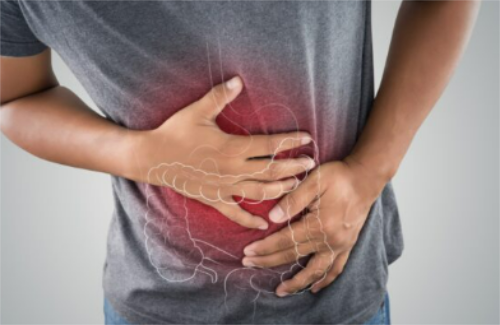COVID-19 may increase the risk of digestive problems
New research shows that people who have had COVID-19 are more likely to experience gastrointestinal problems such as heartburn, bloating, etc. than others.
People who have had COVID-19 are more likely to experience gastrointestinal (GI) disorders such as heartburn, bloating, or gastroesophageal reflux disease (GERD) in the year following infection, compared with people who have not had COVID-19, according to a new analysis published in the journal Nature Communications.
Gastrointestinal problems are among the first to be reported by the patient community, said Ziyad Al-Aly, PhD, Washington University in Saint Louis. The gastrointestinal tract acts as a reservoir for the virus. Overall, people with COVID-19 were 36% more likely to have gastrointestinal problems than those who were not infected with the virus. The risk was present even in people with mild to moderate COVID-19 who did not require hospitalization.
Research shows that prolonged COVID-19 can harm the digestive system in many ways, causing liver problems, acute pancreatitis, IBS (irritable bowel syndrome) and ulcers in the lining of the stomach and intestines, said Dr. Ziyad Al-Aly.
According to the findings, the months after COVID-19 infection were also associated with an increased likelihood of constipation, diarrhea, abdominal pain, bloating, and vomiting…
 |
Stomach ulcers are a common condition after COVID-19. |
1. Some common digestive problems after COVID-19
In one study, scientists analyzed more than 14 million medical records in the US Department of Veterans Affairs database and found that the most common diagnoses were acid-related diseases, such as gastroesophageal reflux disease, stomach ulcers, etc.
After the researchers calculated the prevalence of different digestive problems across all groups, using mathematical models to estimate how COVID-19 affected this risk, they found that people who had had COVID-19 were observed to have a higher risk of several digestive conditions, including:
62% increased risk of developing ulcers in the lining of the stomach or small intestine;35% increased risk of developing acid reflux disease;46% increased risk of acute pancreatitis,54% chance of developing irritable bowel syndrome,47% are more likely to have gastritis,36% more likely to have abdominal pain without an obvious cause,54% are more likely to experience digestive symptoms such as constipation, diarrhea, bloating, vomiting and abdominal pain…
To date, SARS-CoV-2 infections have contributed to more than 6 million new cases of gastrointestinal disorders in the United States and 42 million new cases worldwide.
These findings support other research on the health effects of long-term COVID-19, Dr. Al-Aly said. The virus can affect even those considered healthy or those with mild infections. COVID-19 can attack any organ system in the body, sometimes causing serious long-term consequences, including death.
2. Half of people with COVID-19 have digestive symptoms
According to a November 2022 review in Current Opinion in Gastroenterology, it is estimated that gastrointestinal symptoms occur in approximately half of people with acute (current) COVID-19 infection. Gastrointestinal symptoms persist in approximately 10–25% of these people six months after their initial infection, and 11% of people rate COVID-19-related gastrointestinal problems as their 'most bothersome symptom'.
The digestive system includes the mouth, throat, esophagus, stomach, small and large intestines, rectum, and anus. It also includes the liver and pancreas, which produce enzymes to aid in the digestion of food and liquids. Digestive conditions range from mild stomach problems to life-threatening conditions such as liver failure and acute pancreatitis.
Acute pancreatitis is a condition that can start suddenly and last for several days, causing nausea, vomiting, fever, and respiratory failure…
3. Treatment of digestive diseases that develop after COVID-19
These findings suggest that gastrointestinal issues are affecting a large number of people who have contracted COVID-19, said Dr. Al-Aly. It is important to include gastrointestinal health as an integral part of post-acute COVID-19 care.
Currently, treatment of these problems is based on symptoms and does not differ significantly based on whether symptoms arise before or after COVID-19.






